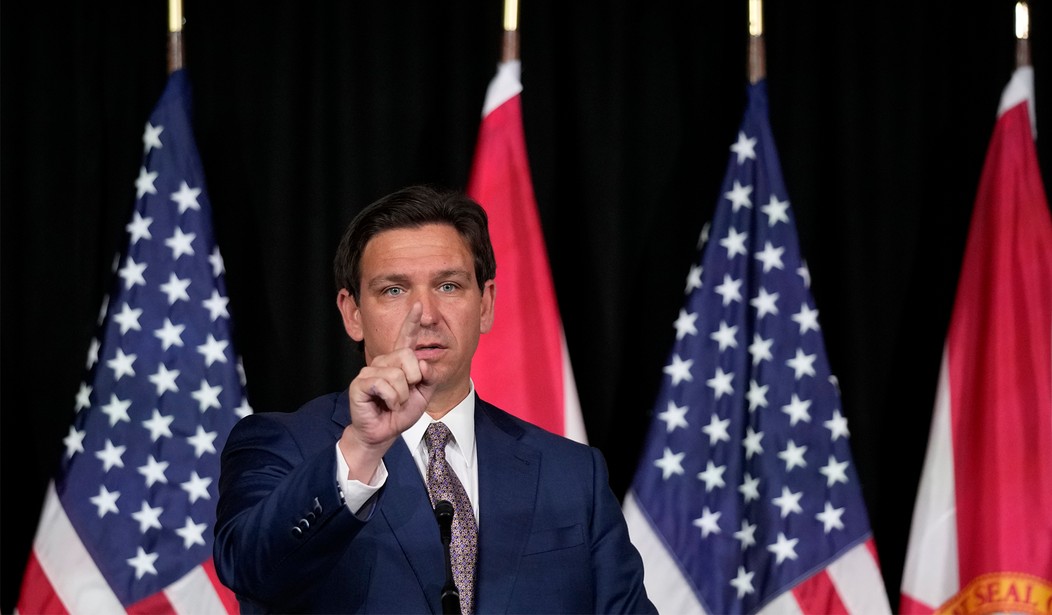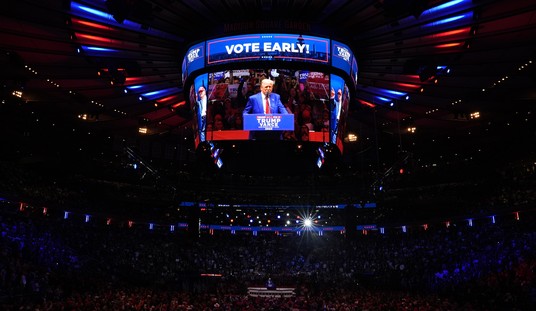The radicalization of America has come to this: It is possible to sympathize with someone's point of view while simultaneously abhorring the means by which they feel licensed to bring that idea to fruition.
The recent rejection of Colorado's plan to ban Donald Trump from the state's primary ballot is a case in point. That then-President Trump did not distinguish himself in the great tradition of U.S. chief executives during the January 6 hullabaloo at the Capitol, and for that, he deserves whatever opprobrium comes his way.
But he's neither been convicted, nor even charged, with inciting or participating in an insurrection; having a law degree, an elected position of significance, and a contrary opinion does not change Trump's legal status. Let us be extremely generous and say Jena Griswold's heart was more or less in the right place: For sending the mob to the Capitol, then sitting on his hands while mayhem ensued — despite the pleas of his Fox News pals — Trump merits a generous heaping of scorn.
But Griswold's radicalized solution — preventing Mountain State Republicans from having their say — was wrong on the facts and wrong on the law. Egregiously so, as her 9-0 smackdown by the U.S. Supreme Court made abundantly clear.
Also Monday, a significant, if less ballyhooed, legal opinion dropped from the 11th District Court of Appeal, this one involving the State of Florida's efforts to repudiate DEI indoctrination in the workplace. Here again, the defendants' hearts -- Gov. Ron DeSantis and the Legislature -- are arguably as pure as late-winter snow: Mandatory training that creeps you out about your race, ancestors, gender, or choices of intimate partners shouldn't, and wouldn't in a sane world, be a condition of employment.
Here again, the defendants' hearts — Gov. Ron DeSantis and the Legislature — are arguably as pure as late-winter snow: Mandatory workplace training that creeps you out about your race, ancestors, gender, or choices of intimate partners shouldn't, and wouldn't in a sane world, be a condition of employment.
Nor would the requirement that employees speak, or sign off on, their employers’ mandated positions.
Lawyers for the state have argued that the law prohibits employers only from demanding of employees “certain speech against their will” that could jeopardize their jobs. … An example the state might have had in mind is a mandatory DEI training that requires staff to attest to certain racial statements maintaining that injustice is deeply rooted in America because of the historic oppression of black people by white people.
It was with the idea of blocking that sort of coercion in mind that lawmakers drafted their bill.
Florida’s Republican-led Legislature passed the “anti-woke” legislation, FL HB 7 (22R), or the Individual Freedom Act, in 2022 with the backing of DeSantis. It expanded Florida’s anti-discrimination laws to prohibit schools and companies from leveling guilt or blame to students and employees based on race or sex, taking aim at lessons over issues like “white privilege” by creating new protections for students and workers, including that a person should not be instructed to “feel guilt, anguish, or any other form of psychological distress” due to their race, color, sex or national origin.
It turns out, as far as the 11th Circuit’s three-judge panel (two Trump appointees, one Clinton) — echoing Barry Goldwater in 1964 — is concerned, so long as the First Amendment retains its status as first among equals, the stop-woke cause is too fine a needle to thread. In the private workplace, anyway.
We’ll see what appeals court judges have to say about the state’s ability to enforce curricula and other influences on students in public universities come summertime.
Interestingly, the anti-woke sentiment encased in the act enjoyed at least a smidgeon of solicitude from the judges: “Florida may be exactly right about the nature of the ideas it targets,” wrote Judge Britt Grant, joined by judges Charles Wilson and Andrew Brasher. In this case, however, being right is irrelevant. As it most likely should be. Grant goes on.
[T]he merits of these views will be decided in the clanging marketplace of ideas rather than a codebook or a courtroom. …
By limiting its restrictions to a list of ideas designated as offensive, the act targets speech based on its content. And by barring only speech that endorses any of those ideas, it penalizes certain viewpoints — the greatest First Amendment sin.
Whether Florida is correct that the ideas it targets are odious is irrelevant — the government cannot favor some viewpoints over others without inviting First Amendment scrutiny.
The DeSantis administration met the news with righteous indignation, claiming the court “has held that companies have a right to indoctrinate their employees with racist and discriminatory ideologies.”
“We disagree with the Court’s opinion that employers can require employees to be taught — as a condition of employment — that one race is morally superior to another race,” Jeremy Redfern, press secretary for DeSantis, said in a statement. “The First Amendment protects no such thing, and the State of Florida should have every right to protect Floridians from racially hostile workplaces.”
Again, the DeSantis/Legislature position strikes us as correct in its ambitions — workplaces shouldn’t be hostile to anyone based on their inherited or privately held qualities — but just ever so slightly wrong on the execution. Yes, by mandating DEI training, employers reveal their slimiest, most prejudiced instincts. But private enterprise gets to do lots of invasive stuff, such as demanding a tobacco-free work force. Meanwhile, America offers lots of places to find gainful employment, and not all of them bend the knee to DEI.
It’s early days, of course, but the DeSantis administration’s initial noises sound like they’d like to make their case to SCOTUS. Given where we are as a nation — divided, angry, and unable to agree even on fundamental facts — those are oral arguments we’d pay to see.
Because, no matter how the decision came out, we’d hear on a national stage how one side thinks it’s great that some employers want the right to demand a specified brand of group think from their employees, and on the other how a certain conservative governor wants employers to leave their employees’ most private thoughts alone.







